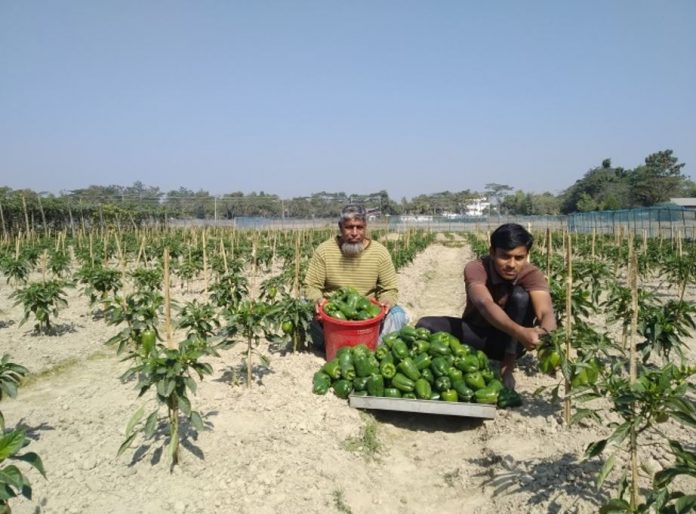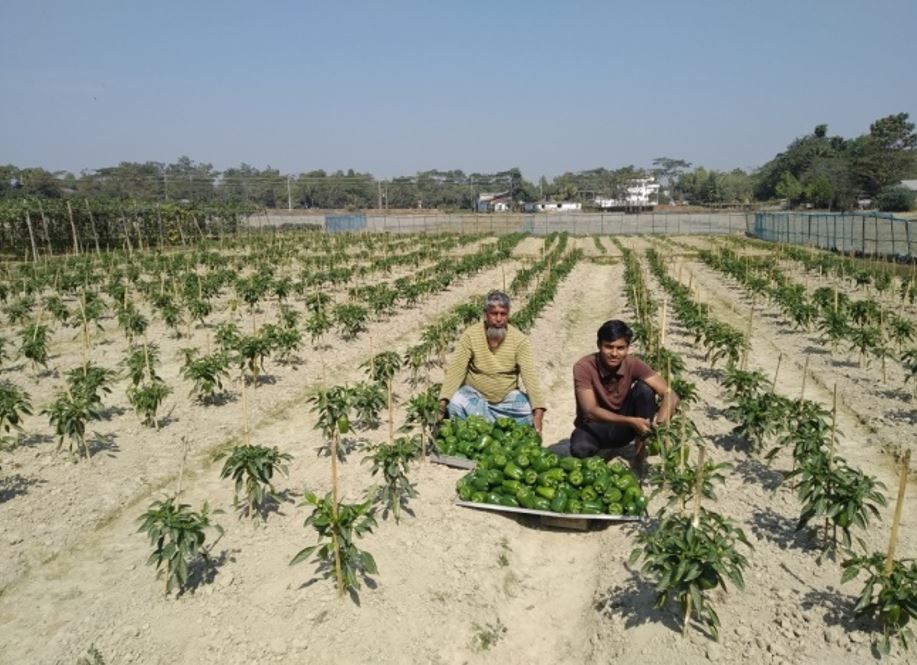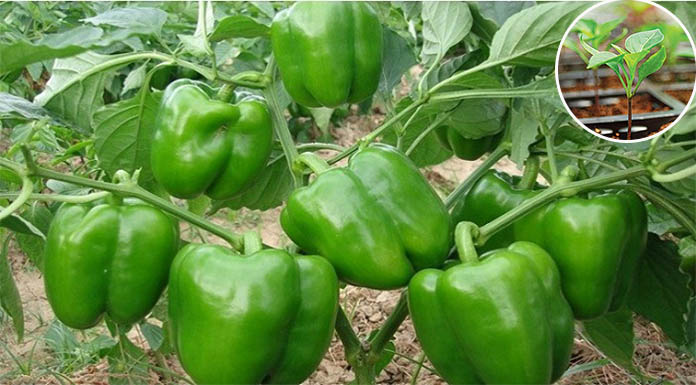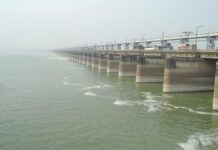
Arindam Bala:
Capsicum, also known as bell pepper or sweet pepper (Capsicum annuum var annuum Grossum Group), is a popular vegetable in some regions over the world especially in cold weather area. In Bangladesh, it was once deemed as a foreign vegetable and a fully new variety, as a result, most people were little familiar with it. In fact, capsicums were originated in America, but are now spread worldwide. In our country, it is also becoming more popular as many farmers and young are commercially cultivating because of high price than other vegetables.
A successful capsicum cultivator, Abul Kasem, 60-year-old, said “I earn more through Capsicum cultivation than from other vegetables like brinjal, bean, bottle gourd and tomato. I have been farming a good number of demanded varieties for decades, but among them Capsicum cultivation more profitable. It has brought slime for my family members as we are spending the earning money for running family, study purpose of son and daughters and I have even repaid loan (about TK 200,000) resulting our livelihoods has promoted considerably.”
Abul Kasem, who arrived in Sylhet from Netrokona 14 years ago, has been farming the potential (Capsicum) variety since 2015 in Daspara Village, Khadim Para, Sylhet Sadar, Sylhet. His second son Delower Hossain, 18, assists him all times for farming. Actually, his elder son was the first person of Capsicum farming in their locality, has learned as to through YouTube. In 2015, they cultivated only 50 plants as a hobby. And in 2016, they farmed 200 plants; and in 2017, 500 plants. But their knowledge was not enough that time for way forward. 
In 2018, one day Kasem took part in training on agriculture provided by the Department of Agricultural Extension (DAE), Sylhet Sadar, Sylhet. In the training, Upazila Agriculture Officer had known about Kasem’s interest on Capsicum farming. In that year, the Department of Agricultural Extension (DAE) extended helping hand towards him proving technical knowledge and other required materials like fertilize and cost of seed and fence. Since 2018 they (Kasem and Delower) entered a commercial phase of capsicum cultivation and it is now continued independently. In 2018 they cultivated 1900 plants where invested merely TK 70,000 and profited Tk 150,000. In 2019 they cultivated 1500 and in 2020, 1200 plants. In 2020 they could not profit as all hotels and restaurants were closed, and transportations were sundown due to lockdown for coronavirus pandemic.
We had an intention of increasing land and plant more capsicum, but due to fear of coronavirus, it has not been possible. Notwithstanding, this winter (2020-2021) we have nurtured 1100 ‘Capsicum’ plants in 20 decimals of lands which has already gotten a good yield. Until recently we have sold out 310 kg price from 120 to 130 TK per kilogram for 32,400 taka (till 3rd March) from 1100 plants that is why we are very pleased said Delower son of Kasem. We are expecting that capsicum will produce from 1.5 to 2 kilogram from each plant and overall the production may be from 1650 to 2200 kg from 1100 plants. The price would be from 198,000 to 264,000 but their expenditure is only 30,000 taka.
Local vendors purchase harvested vegetable and supply to supper shop Shwapno, restaurants and local kitchen market. Kasem said we face hurdle for sale and supply the yielded vegetable to any prominent company directly because they are reluctant to purchase Capsicum from us as they need year around but we are seasonal producers. But we are heading for year around production through making shade as we have learned enough about this. 
Due to enhancing knowledge on farming of the unique variety, cultivation expenditure for this year has substantially lessened as opposed to previous years. This year we have spent 30,000 taka till now for 1100 plants while in 2018 we spent 70000 taka for 1900 said Delower. He shares his experience like this we expended some money unnecessary because we had no enough knowledge. As we have been farming this high priced vegetable since 2015, so understanding capacity is increasing that is applying in the farming plot and we profit more than earlier.
As the farmer’s family fully dependent on vegetable cultivation, so they remain busy almost all seasons with different farming. They have cultivated bean in 60 decimal of lands and invested Tk 25,000 and currently bean is being sold out and they will earn Tk 75,000 from 60 decimal of lands. So, if we compare, we will see that the land area of capsicum is less than other vegetable lands area. And in terms of investment in capsicum is not like other vegetables based on lands area but profit is more than other vegetables.
Here, it is the mentionable point is that we use comparatively less chemical fertilizer and pesticide. We use more organic fertilizer like dried cow-dung 1500 Kg and, Khoil-70 Kg. Because of using such fertilizers, organic maters are added into the soil and it also help to increase the soil buffering capacity thus helping to regulate soil acidity consequently production rate is higher than other vegetables. Because of getting successes the local communities have become enthusiastic and inspired by them, said Kasem
In the meantime, after seeing their success, a good number of farmers have started Capsicum cultivation for example Chand Miah, 50, Mashukgonj Bazar, under Tukerbazar Union, Sylhet, has planted 700 plants and another farmer is Joynal, 25 resident at Syestagonj, has cultivated 1000 plants and both have started getting production and profit.
The foreign vegetable (Capsicum) is highly demanded at restaurants, hotels (Five Stars, Three Star) and cottages. Because of being tourist destination, the number of them in Sylhet, Mouvibazar and Sremmanagal is relatively higher than other areas. It is assumed that capsicum farming is rosy in Sylhet region as there remaining thousands of acres lands without cultivation and the market demand of capsicum is higher than other vegetables. So, it is projected the area of capsicum farming could be expanded noticeably and more young people could be involved in this potential variety that would bring enormous employment and financial solvency for local communities.
* The writer is an environmental activist and development worker. He can be reached at [email protected]






























